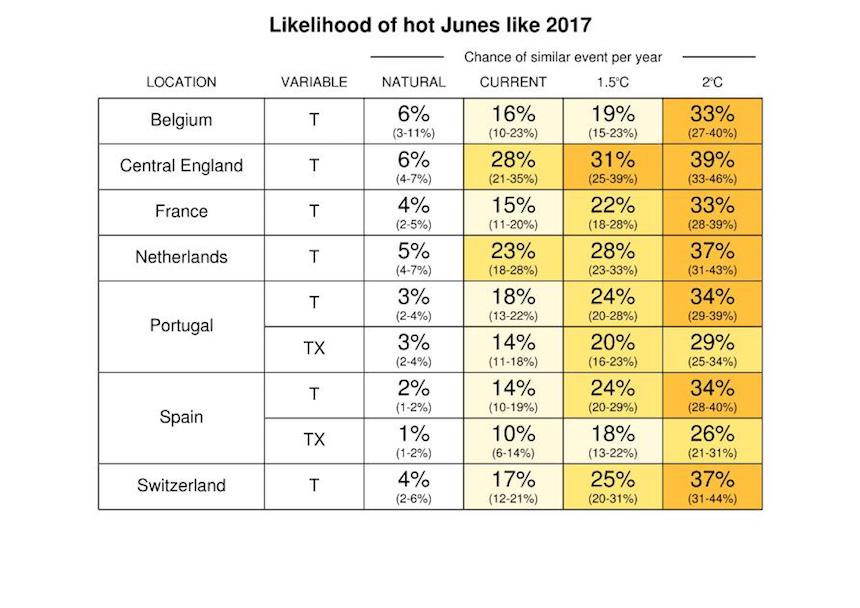
This June, Europe experienced some remarkable heat. Temperature records were smashed across the west of the continent with extremely hot days followed by warm uncomfortable nights for many.
While the heat was fun for some, it took its toll on others, contributing to the Portuguese wildfires, which killed at least sixty-four people. Undoubtedly the heat will have caused many more deaths across the continent through heat stroke and pre-existing conditions exacerbated by the hot weather.
Previous research has found that excess deaths during recent European heatwaves can be attributed to the human influence on the climate. These extreme heat events are becoming more common in Europe and around the world. In order to be prepared for future severe heatwaves we need to understand how and why they are changing.
Did climate change play a part?
Dr. Andrew King of the University of Melbourne, saysthat the university’s World Weather Attribution group, coordinated by Climate Central and including researchers from Australia, France, the Netherlands, Switzerland, the United Kingdom, and the United States, performed a multi-method study of the event. This rapid analysis examined how the likelihood of hot June temperatures has changed, and assessed the role of human-caused climate change in the hot temperatures across Europe. You can find full details of the analysis here.
First the group examined the observational series of temperatures for each of the seven regions of Western Europe it studied: Belgium, central England, France, central Netherlands, Portugal, Spain and Switzerland. June 2017 was unusually warm for all these areas, with new records for the month set in Portugal, Spain and central Netherlands. In all the regions the group studied, the hot temperatures were unusual even in the current climate.
When the researchers used statistical methods to compare the world of 2017 with that of 1900, they saw large increases in the likelihood of heat events across Europe. For example, the average daytime temperatures over Portugal in June were at least 150 times more likely than they would have been over a century ago.
To explicitly investigate the role of climate change in this heat, the group’s researchers had to use climate models with and without human influences and study the changes in hot June temperatures.
The researchers used four different sets of climate model simulations to do this analysis including global models and regional model simulations only covering Europe. Based on each of these model experiments, the researchers could clearly see that human-caused climate change has increased the likelihood of hot June temperatures. This is the case even when the team of researchers looked at very small regions, like central England and central Netherlands, where the climate is more variable making it harder to find a climate change signal.
“We can be confident that human influence on the climate significantly increased the likelihood of this extreme heat event occurring,” Dr. King says.
What can we expect in future?
Whether these extreme heat events become the “new normal” in future largely depends on whether nations take strong action to tackle climate change.
Under a business as usual scenario, where mankind continues to increase its greenhouse gas emissions, the researchers found that, in Europe, extreme heat events like June 2017 would be close to average by the end of this century.
On the other hand, if nations stick to the Paris targets of limiting global warming to 1.5°C or 2°C, then it is possible to prevent these heat events becoming too common.
For example, at 1.5°C of global warming we would expect very hot June temperatures in Portugal — like this year’s — to occur in about one in every four years, while at 2°C of global warming such heat would occur in about one in every three years on average.
“Given the impacts of extreme heat, there is clearly a benefit to limiting global warming in line with the Paris Agreement,” Dr. King writes. “If we let global warming continue unabated then the extreme heat of June 2017 will become the new normal, and we either have to adapt or suffer the consequences.”


